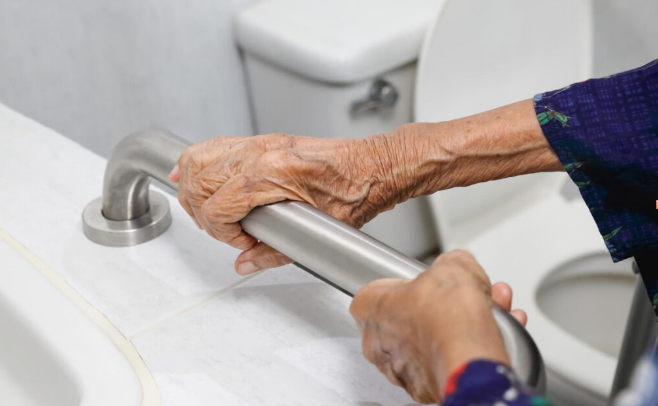How to Assist a Loved Grandpals with Toileting
By Grandpals care
Assisting a loved one with toileting can be a sensitive and challenging task, but with patience,
empathy, and proper techniques, you can provide effective assistance while maintaining their
dignity and comfort. Here are some steps to assist a loved one with toileting
-
Respect their privacy and dignity: Always approach the task with respect for their privacy and dignity. Maintain open communication and ask for their preferences and needs.
-
Create a safe environment: Ensure the bathroom is well-lit and free of obstacles to prevent falls or accidents. Use non-slip mats and grab bars if necessary.
-
Assist with clothing: Help them with undressing and dressing as needed. Be gentle and patient, allowing them to maintain as much independence as possible.
-
Transfer to the toilet: If they need assistance transferring to the toilet, use proper lifting techniques or assistive devices such as a transfer belt or wheelchair. Always prioritize their safety and comfort
-
Provide support during toileting: Offer physical support as needed, such as helping them with balance or steadying them while they use the toilet. Ensure they are positioned comfortably and safely.
-
Maintain hygiene: Assist with personal hygiene tasks such as wiping, cleaning, and washing hands. Use gloves if necessary and be thorough yet gentle
-
Respect their autonomy: Allow them to participate in the process as much as possible, respecting their preferences and choices. Offer encouragement and reassurance throughout.
-
Be patient and understanding: Understand that toileting assistance can be a sensitive and sometimes embarrassing issue for your loved one. Approach the task with patience, empathy, and understanding.
-
Communicate effectively: Keep communication open and respectful. Encourage them to express their needs and concerns, and be responsive to any discomfort or difficulties they may experience.
-
Seek professional help if needed: If your loved one requires more specialized care or assistance, consider seeking help from healthcare professionals such as nurses, caregivers, or occupational therapists.
Remember that assisting a loved one with toileting requires sensitivity, empathy, and respect for their dignity and autonomy. By following these steps and adapting to their individual needs, you can provide effective support while preserving their sense of independence and dignity.
